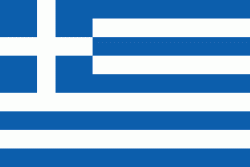Eordaea (Dimos Eordaia)
Eordaea (also spelled Eordaia or Eordia, Ἐορδαία) was a geographical region of upper Macedonia and later an administrative region of the kingdom of Macedon. Eordaea was located south of Lynkestis, west of Emathia, north of Elimiotis and east of Orestis.
Eordaea stretched in the basin of Eordaia, the current homonymous municipality in Greece, which is named after the ancient region, and also in the southern part of the municipality of Amyntaio and the western part of the municipality of Edessa.
The capital of Eordaea was the city of Eordaea (el) (Εορδαία, κείμενη της λίμνης), which was mentioned by many historians and geographers of antiquity.
The name Eordaea is of proto-Greek origin and related to the Mycenaean word "Ϝορδία" meaning "rich land". The name refers to the fact that Eordaea was a region rich in roses, as noted by Herodotus (8.138).
Eordaea stretched in the basin of Eordaia, the current homonymous municipality in Greece, which is named after the ancient region, and also in the southern part of the municipality of Amyntaio and the western part of the municipality of Edessa.
The capital of Eordaea was the city of Eordaea (el) (Εορδαία, κείμενη της λίμνης), which was mentioned by many historians and geographers of antiquity.
The name Eordaea is of proto-Greek origin and related to the Mycenaean word "Ϝορδία" meaning "rich land". The name refers to the fact that Eordaea was a region rich in roses, as noted by Herodotus (8.138).
Map - Eordaea (Dimos Eordaia)
Map
Country - Greece
 |
 |
| Flag of Greece | |
Greece is considered the cradle of Western civilization, being the birthplace of democracy, Western philosophy, Western literature, historiography, political science, major scientific and mathematical principles, theatre and the Olympic Games. From the eighth century BC, the Greeks were organised into various independent city-states, known as poleis (singular polis), which spanned the Mediterranean and the Black Sea. Philip II of Macedon united most of present-day Greece in the fourth century BC, with his son Alexander the Great rapidly conquering much of the ancient world, from the eastern Mediterranean to the North Western parts of India. The subsequent Hellenistic period saw the height of Greek culture and influence in antiquity. Greece was annexed by Rome in the second century BC, becoming an integral part of the Roman Empire and its continuation, the Byzantine Empire, which was culturally and linguistically predominantly Greek.
Currency / Language
| ISO | Currency | Symbol | Significant figures |
|---|---|---|---|
| EUR | Euro | € | 2 |
| ISO | Language |
|---|---|
| EN | English language |
| FR | French language |
| EL | Greek language |
















